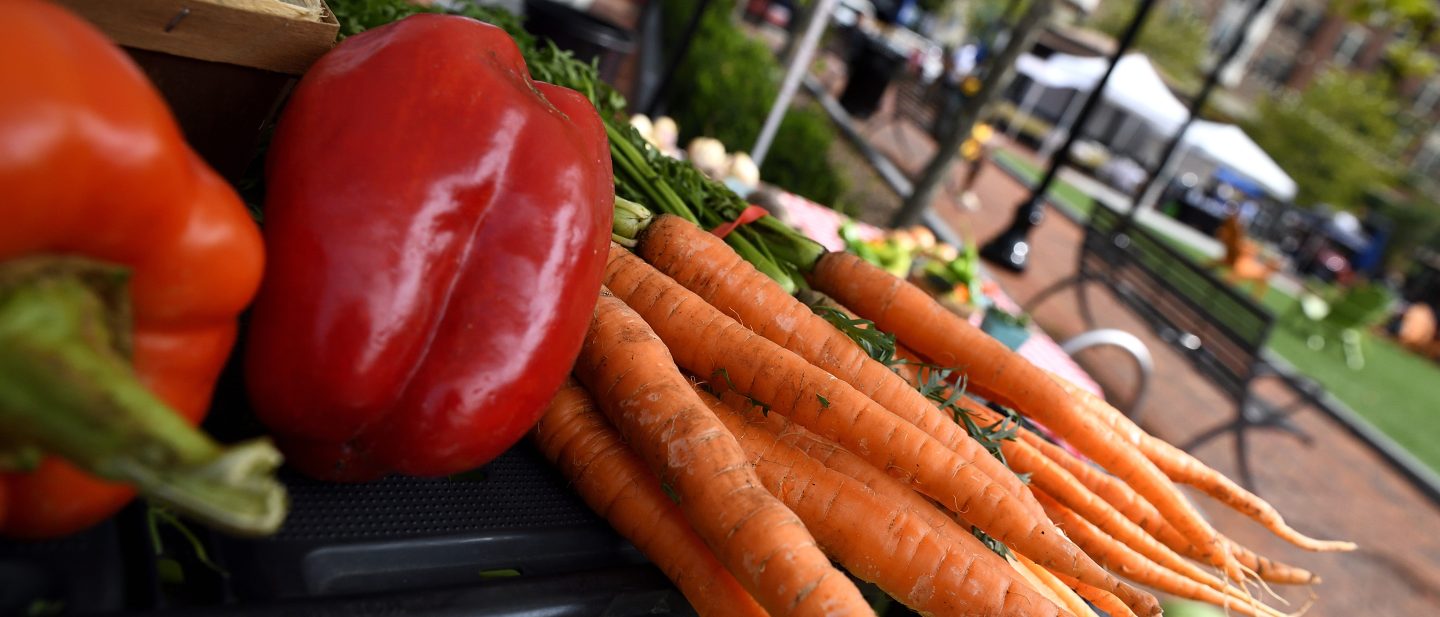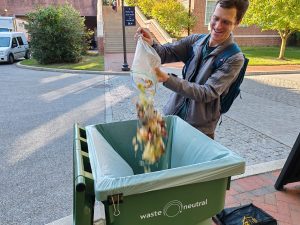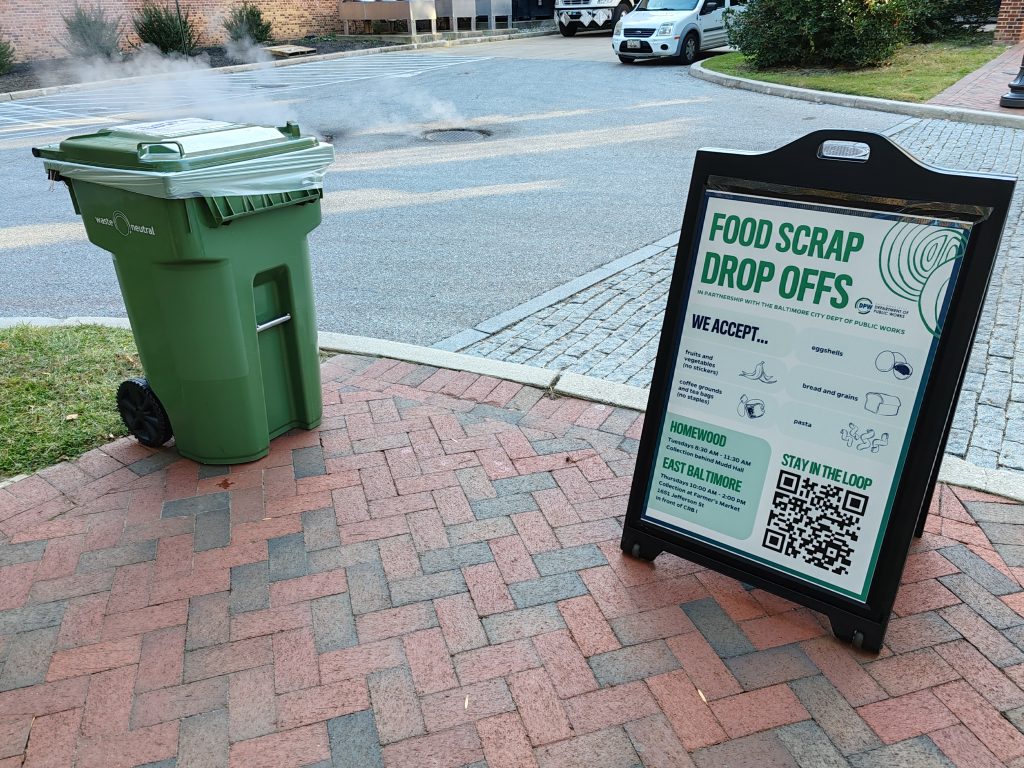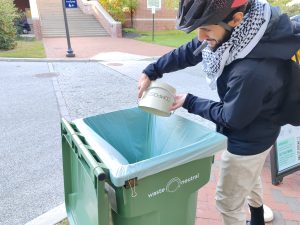
Composting has a number of environmental, ecological, and social impacts. Nearly 40% of food in the US is wasted every year, significantly contributing to greenhouse gas emissions in both production and disposal. To combat this, composting diverts food scraps from landfills and incinerators, reducing emissions in the process. It also adds beneficial nutrients, sequesters carbon, and increases crop yield and vegetation, improving soil quality and environmental conditions. Ultimately, composting leads to healthier soils and more resilient ecosystems —benefitting food security, increased biodiversity, and public health.
Composting at JHU

All JHU divisions now compost organic waste. In 2023, composting began at APL, Peabody, and the new Hopkins Bloomberg Center in D.C., and the practice resumed at Mt. Washington and Keswick locations after pausing during the pandemic — while continuing at Homewood and East Baltimore locations. In 2023, JHU composted 257 tons across all divisions.
Where can I bring my compost from home?
In September 2023, JHU partnered with the Baltimore City Department of Public Works to expand their Residential Food Scrap Drop-Off Program. With funding from a USDA-administered grant that DPW received, JHU established two new expanding access to composting across the city. Under the program, JHU affiliates and Baltimore community members alike can drop off their compost on the Homewood campus every Tuesday from 8:30-11:30 AM, and on the East Baltimore campus every Thursday from 8:30-11:30 AM.

“Showing that there is a need, demand, and support across the Baltimore community could eventually become a more formal residential curbside program.”
Baltimore currently does not offer a residential composting program for residents, so by establishing drop-off locations and tallying the number of participating citizens, DPW can demonstrate the composting needs of residents and build a case to encourage city administrators to establish a permanent program.
“It really helps when people use these official channels,” says Leana Houser, Waste Reduction and Recycling Manager at JHU. “showing that there is a need, demand, and support across the Baltimore community could eventually become a more formal residential curbside program.”
To locate other participating food scrap drop-off locations in Baltimore, visit this site created by JHU students.
Where does JHU’s compost go?
JHU’s compost is diverted to Prince George’s County Composting Facility in Upper Marlboro, Maryland. There, the compost is processed using a specialized technology that transforms food scraps and organic waste into a rich humus-like material that can be used as a beneficial soil amendment.

Recently, however, Baltimore City received $4 million of federal EPA funding to build a composting facility in the city’s Eastern Sanitation Yard. JHU, working in support of the Department of Public Works and the South Baltimore Community Land Trust, previously joined several institutions in writing a letter of support for federal funding. Additionally, JHU pledged at least 500 tons of the institution’s food scraps, yard waste, and other organics generated annually to be diverted to the proposed facility.
New to composting?
“It can be a little bit of a daunting practice, so maybe start small with just coffee grinds or egg shells” says Houser. “As you get more comfortable and get into a composting routine, then you can add a wider range of food scraps.”
Different facilities accept different types of organic waste for composting, so be sure to educate yourself on what you can and cannot compost, depending on your facility.